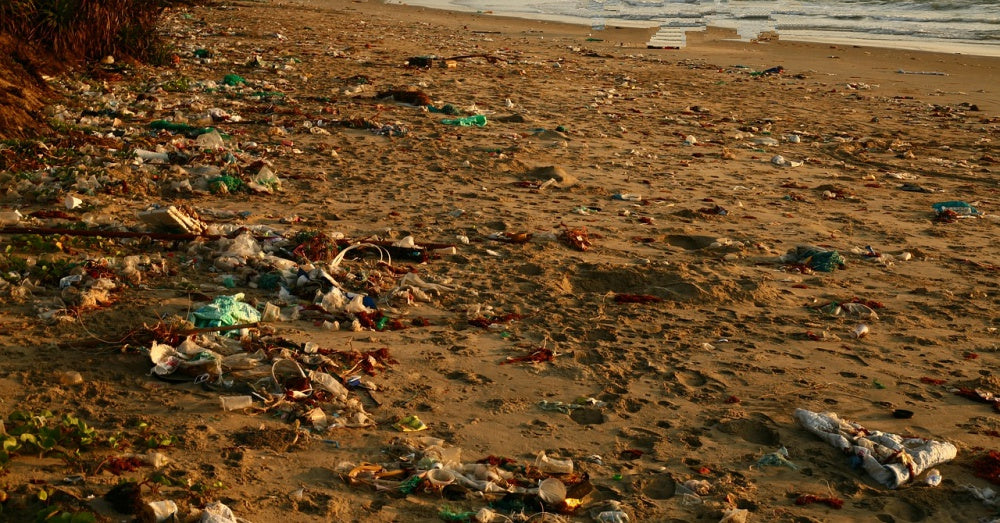7th Annual Holiday Toy & Book Event Help make the holidays brighter this year!
Food Wrappers Top The List Of Trash Found On Beaches Worldwide
Andrea Powell
While candy bars and potato chips are delicious and popular snack foods, have you ever thought about what happens to the plastic wrappers they come in?
Sadly, many end up polluting our oceans and beaches.
Every year, 8 million metric tons of plastic enter our oceans and claim the lives of 100,000 animals that either mistake it for food or become entangled. At the current rate, plastic pollution is predicted to double over the next 10 years.
 Pixabay
PixabayThankfully, concerned people are stepping up to volunteer and clean up trash from their local beaches through Ocean Conservancy's annual International Coastal Cleanup (ICC).
The program was started in 1986 to clean up oceans and beaches worldwide with the help of volunteers that recorded the amount and types of trash they collected. Ocean Conservancy released the numbers from previous year ICC which revealed plastic food wrappers were the number-one-reported item of trash, surpassing cigarette butts for the first time in ICC history.
 Pixabay
PixabayOver 900,000 volunteers from around the world took park in the 2019 ICC and according to the reports removed 4,771,602 food wrappers in a single day. However, cigarette butts were not far behind with a staggering 4.2 million collected in one day.
The remaining trash collected consisted of 1.9 million plastic beverage bottles, 1.5 million plastic bottle caps, and 942,992 straws and stirrers.
 Pixabay
PixabayFood wrappers were defined by the organization as "a category consisting of chip bags, candy wrappers, drink pouches and similar flexible packaging – usually made of plastics."
These types of wrappers are made up of layers of plastic and nearly impossible to recycle with minimal alternatives.
 Pixabay
Pixabay"We can recycle plastic bottles, we can bring our own bags to the supermarket, and many of us can even skip the plastic straw altogether; but when it comes to keeping food fresh, safe, and accessible, manufacturers have put most of their research and development energy into disposable plastics," said Nick Mallos, senior director of Ocean Conservancy’s Trash Free Seas® program. "We need food science and packaging experts to accelerate research and development of packaging that isn’t destined for landfills, and that keeps both people and our ocean safe and healthy."
In total, volunteers from 116 countries removed 20.8 million pounds of trash in one year, but hope to clean up even more this year.
 Pixabay
PixabayThe International Coastal Cleanup is underway. Thousands of people around the world are picking up trash near waterways and oceans near their homes and using the Clean Swell app to report their findings. Every little bit helps, so please head to your local beach and #CleanOn.
"The ICC is about community and collective action, and we – and the ocean – need that now more than ever," said Allison Schutes, director of Ocean Conservancy’s ICC.
 Pixabay
PixabayClick here to learn about ways to take action provided by Ocean Conservancy.


